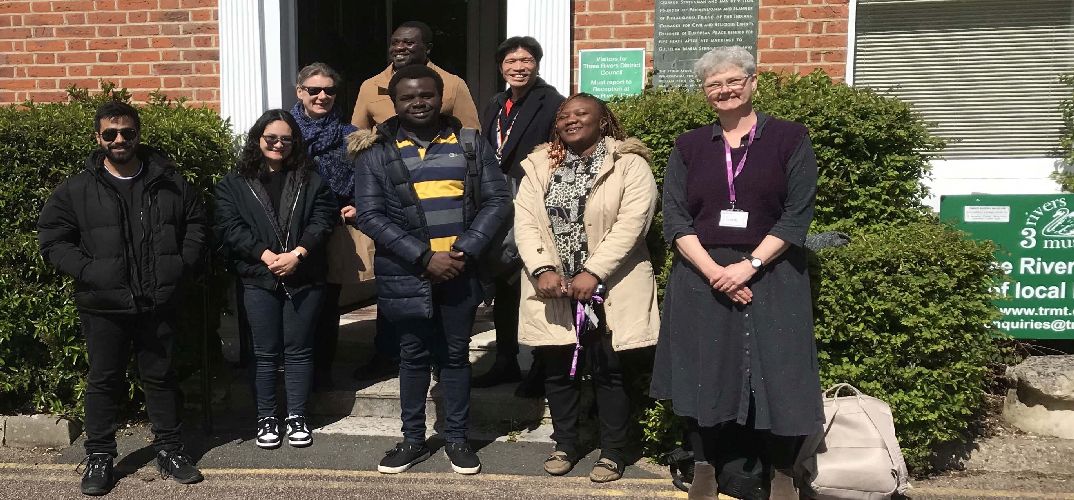Herts Business students unlock 19th century farming secrets

A group of students from Herts Business School have set about extracting the farming and sustainability secrets from a unique and long-lost historical archive.
The undergraduates have been tasked with learning how one man thrived while others failed by examining the diaries of a prominent farmer who died 120 years ago.
The lost diaries of successful Hertfordshire farmer John White, who kept extensive records of his business and personal affairs between 1839 and 1896, were recently donated to the Three Rivers Museum in Rickmansworth.
White’s Parsonage Farm, also situated in the Hertfordshire town, flourished while others in the UK struggled. Now his diaries are being painstakingly transcribed and digitised by a team of volunteers to see if they hold the key to success for modern generations.
Dr Sue Davies and her colleague Dr Derek Ong, lecturers at Herts Business School, are leading the project. Dr Davies said:
“Our focus as a university is on the quality of our business partnerships and innovative ideas, transforming lives through our research. Now we are even applying that approach to history itself.
“We want to unearth what we can learn for today’s uncertain world about business success, sustainability and circularity from somebody who coped with those things in a different era, but with little technology to assist him.
“How did John White outperform his contemporaries? How did he cope better when adverse weather struck? Can we apply his skills and coping techniques to find answers for modern more circular and sustainable business, a challenge that is perennial.”
The students will examine how White went about the process of change, his approach to adopting steam and fertilisers, how he handled food production and his management of crops and livestock.
John White’s diaries and many associated business records were donated to Three Rivers Museum by his descendants after many years of being thought lost, and are curated by its Chairman, Fabian Hiscock, who himself studied at the University of Hertfordshire and who forged this partnership.
Fabian commented:
“These lovingly preserved diaries are a historian’s gold. They shed light on what life was like for people over 150 years ago in the East of England and give a fascinating insight into daily life and working conditions in this area.
“Who John White employed, how much he paid them, what their work was (both men and women), how the weather helped or hindered them - all this will emerge.
“For commerce, we learn about his business network, family members, neighbouring farmers, suppliers and landlords: and his personal use of transport – roads, railways and the canal, with its wharfs and barges - for moving goods and materials also come through strongly. And there is so much more!
“Above all, this exercise shows how important family history is for the public record and how useful keeping a diary is. John White’s compelling entries are effectively the podcasts of their time and deserve to be widely heard.”
The students’ six-month project will lead to an exhibition of the archive that will go online and be on display to the public when finished. Fabian Hiscock hopes that at least one book will come from Project Harvest, with more later as researchers come to grips with the wealth of the material.
The co-produced project - known as the Hertfordshire Agricultural Research into Victorian Enterprise for a Sustainable Tomorrow (or HARVEST) - is being funded by the AHRC Impact Acceleration Account (IAA).
Further information is available on the University’s Heritage Hub website and the Three Rivers Museum’s website.
The University of Hertfordshire Business School teaches around 9,000 students across eight subject areas. Read more about the courses on offer.